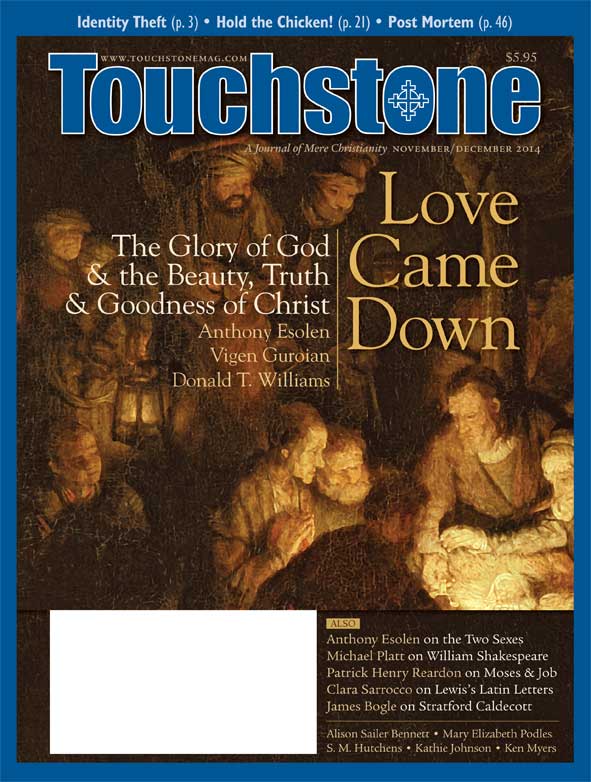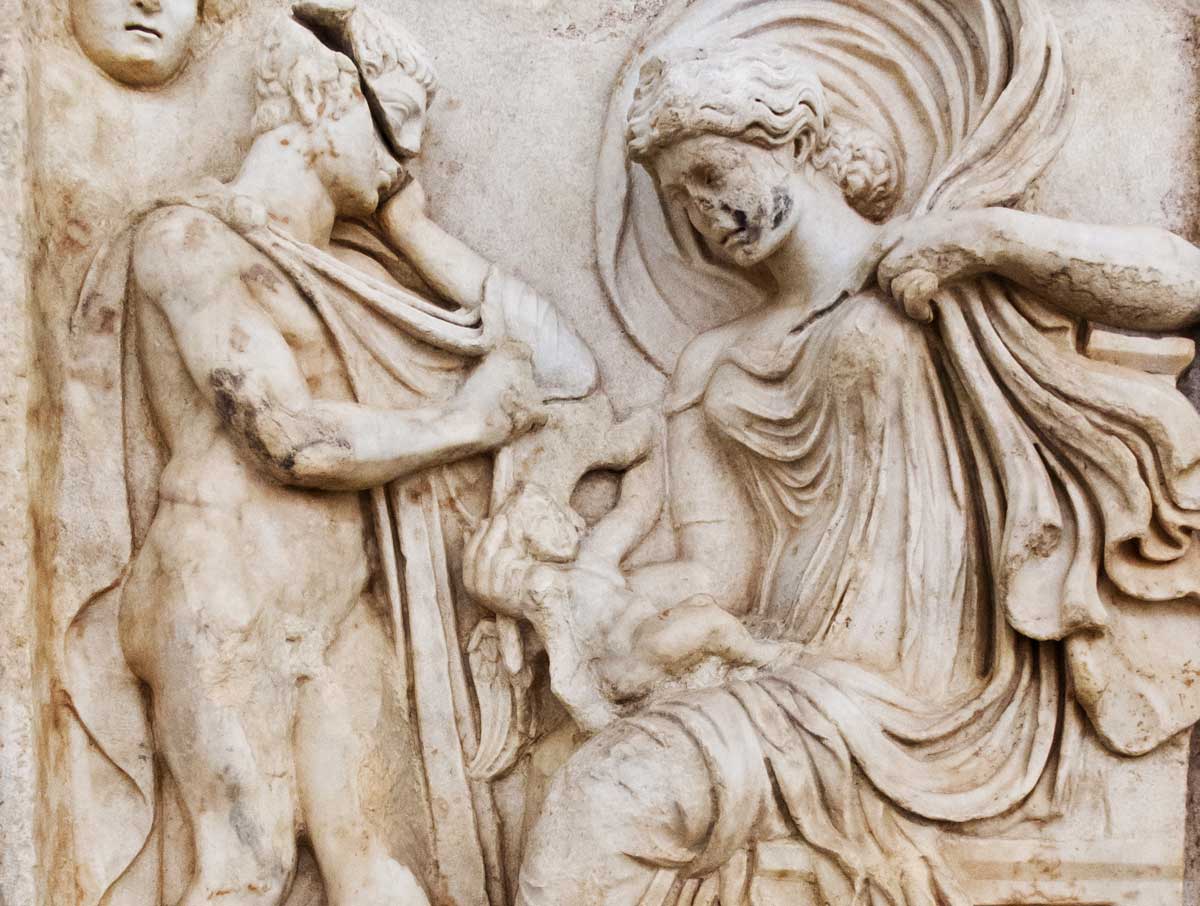The Wonder of His Works
In a recent conversation, a local pastor commented that many of his parishioners seem to behave as if the Bible begins in Genesis 3 with the account of the Fall, rather than in Genesis 1 with the glorious account of Creation. This confirmed my suspicions that theology for many Christians has been reduced to soteriology. They understand the horror and tragedy of the dark shadow of sin without paying attention to the colors and textures of that on which the shadow falls. They are aware that all we like sheep have gone astray, but they are not terribly interested in the distinct wonders of creatures such as, for example, sheep. The sheer fact of God's act of Creation is earnestly defended by many who seem to have no interest in leisurely reflection on the qualities of Creation.One of the services performed by artists working in various modes (whether visual, audible, or narrative) is to call our attention to various particularities within Creation. Our imagination, not analytic reason, enables us to sustain an abiding sense of our creatureliness and of the meaningfulness of the order in which we were made to live. So we need works of art that re-present the world to us in ways that alert and remind us of what and where we are. Gratitude and wisdom can grow from such awareness; Solomon—who spoke of trees and beasts and birds and reptiles and fish (cf. 1 Kings 4:33)—is the paragon of such perceptivity.
To convey to our imagination an abiding sense of the world's goodness and givenness, artists require a vocabulary capable of such representation. Many of the conventional aesthetic resources of the contemporary arts are well suited to expressing anxiety, alienation, chaos, and violence, but are not as capable of evoking innocence, simple purity, or quiet delight. (I'm more and more convinced that the omnipresence of relentless rhythm sections, even in love songs, is an expression of the mechanistic and brutish presuppositions of a culture convinced that all life forms are the end-result of a mindlessly competitive process of
mere survival.)
Inspired by Handel
THIS ARTICLE ONLY AVAILABLE TO SUBSCRIBERS.
FOR QUICK ACCESS:
Ken Myers is the host and producer of the Mars Hill Audio Journal. Formerly an arts editor with National Public Radio, he also serves as music director at All Saints Anglican Church in Ivy, Virginia. He is a contributing editor for Touchstone.
bulk subscriptions
Order Touchstone subscriptions in bulk and save $10 per sub! Each subscription includes 6 issues of Touchstone plus full online access to touchstonemag.com—including archives, videos, and pdf downloads of recent issues for only $29.95 each! Great for churches or study groups.
Transactions will be processed on a secure server.
more from the online archives
calling all readers
Please Donate
"There are magazines worth reading but few worth saving . . . Touchstone is just such a magazine."
—Alice von Hildebrand
"Here we do not concede one square millimeter of territory to falsehood, folly, contemporary sentimentality, or fashion. We speak the truth, and let God be our judge. . . . Touchstone is the one committedly Christian conservative journal."
—Anthony Esolen, Touchstone senior editor











